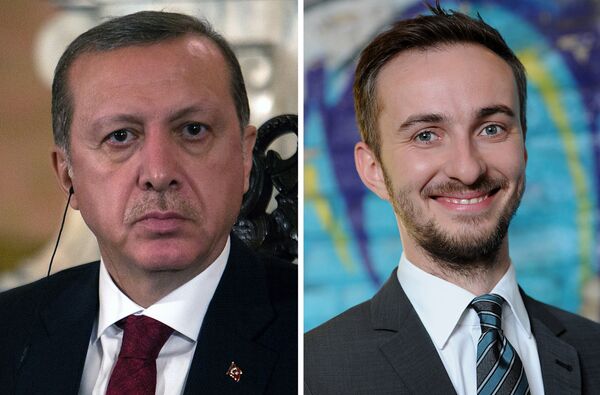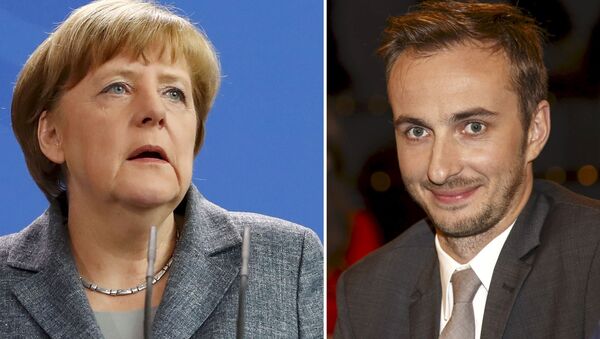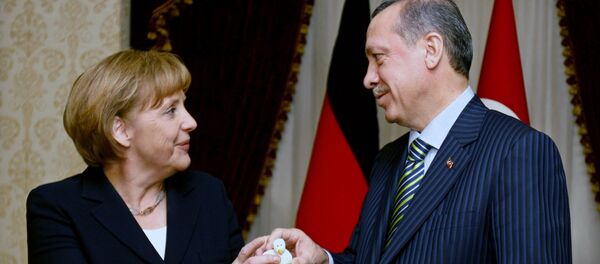On March 31 German satirist Jan Bohmermann broadcast a sexually explicit satirical poem about President Erdogan during his comedy show on German public broadcaster ZDF, called "Defamatory Poem."
Following the broadcast the Turkish President pressed charges against Bohmermann for insulting him as a foreign head of state, which is possible according to section 103 of Germany's criminal code.

Ministers #Steinmeier+@HeikoMaas on #Böhmermann+why the idea of lese-majeste no longer has a place our criminal law. https://t.co/vxCLBClan6
— GermanForeignOffice (@GermanyDiplo) 15 апреля 2016 г.
"Legally it is not for the government but for the prosecutors and courts to balance the right to privacy and other concerns regarding the press and artistic freedom," she said, explaining the controversial decision.
In a telephone call with Turkish Prime Minister Ahmet Davutoglu on April 4 the Chancellor said that she agreed with Davutoglu that the poem was "a deliberately hurtful text" about the Turkish President, a government spokesman said.
"Something that bothers me personally about recent days is that on April 4 I called this (Bohmermann's poem) 'deliberately hurtful,' which gave the impression that in this case my personal values count for something," the Chancellor said.
"In hindsight that was a mistake and it led to the impression and perhaps the thought that freedom of opinion and press freedom are not important any more, and these are important to me and they will remain important, and that guides me in all discussions."
"Human rights, the right to freedom, freedom of the press are essential values," Merkel said.




